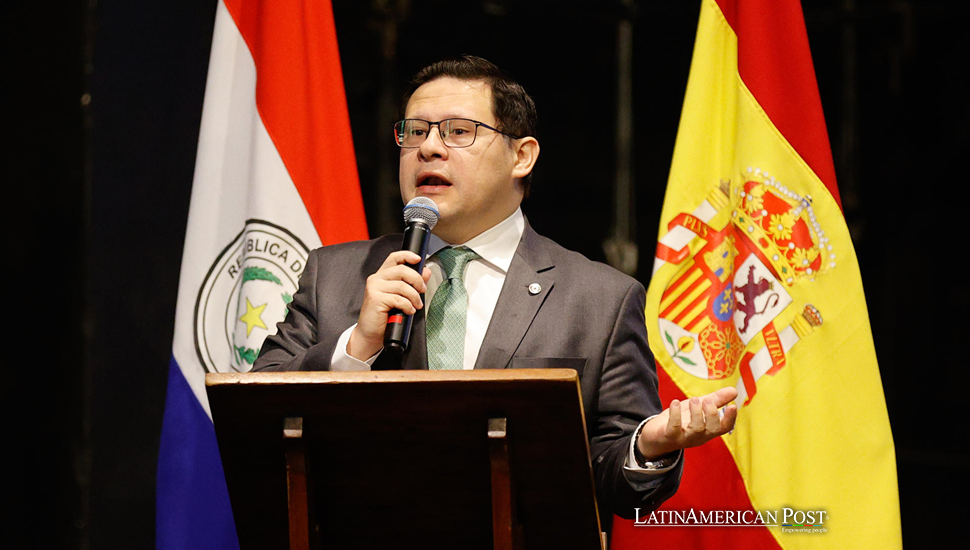How Latin America Shaped Spain’s Global Economic Identity

Latin America played a key role in shaping Spain’s economic reach worldwide. It connected Spain with global supply chains. A recent report from the Real Instituto Elcano shows this close relationship. It looks at economic connections, historical challenges, and upcoming obstacles. Important ties shape both regions.
The Backbone of Spain’s Global Strategy
Spain’s journey toward becoming a global economic player owes much to its ties with Latin America. José Juan Ruiz, president of the Real Instituto Elcano, emphasized this during a presentation before Spain’s Senate Ibero-American Affairs Committee. According to Ruiz, Latin America has been a bridge and engine that has enabled Spain to connect with global supply chains.
“Latin America has given Spain the strength, knowledge, and integration to globalize its economy,” he noted, explaining that these achievements couldn’t have been realized by focusing solely on Europe.
Spain has invested over €680 billion in other countries. Most of this money goes to developed places like the United States and the European Union. Less than half goes to growing markets, and almost all of this, 95%, goes to Latin America. This really shows how important the region is in turning Spanish companies into big names globally. Whether in telecommunications, energy, or finance, Latin America has offered Spanish firms the opportunities to expand, innovate, and thrive.
Spain Through Latin American Eyes
Economic ties between Spain and Latin America run deep, but a shared cultural and historical foundation complements them. According to Ruiz, King Felipe VI significantly impacted Spain’s political image in the region. This impact covers 80% of how people see Spain. The remaining 20% comes from history, which still affects today’s connections.
Ruiz noted that figures like the Spanish king help balance old grievances. For example, former Mexican President Andrés Manuel López Obrador asked King Felipe VI to apologize for the wrongs of Spanish colonial rule. This request highlights the ongoing tension between past events and current diplomacy.
Ruiz mentioned, “The cultural and historical ties we share are like a double-edged sword.” These ties give us common ground, yet they also reopen past wounds. Managing this tricky relationship means looking at history while building present partnerships. Spain has mostly done well in this task.
China’s Growing Presence: A Challenge or Opportunity?
As China strengthens its foothold in Latin America, European and Spanish policymakers have expressed concern. Yet, Ruiz is less alarmed. While Chinese investments target strategic sectors in politically unstable nations like Venezuela, Bolivia, and Argentina, their impact still needs to be improved.
“Latin America is deeply connected to Europe through its institutions and values,” Ruiz stated. Although China is becoming more present, he mentioned that the region’s democratic systems and its liking for European models counter China’s influence.
However, Ruiz admitted that China’s focused investments in important industries worry people. “These investments are strategic, not expansive,” he said, describing them as concentrated efforts rather than broad-based economic influence.
Beyond Stereotypes: Latin America’s Rising Middle Class
Ruiz’s main argument opposed the old story of Latin America as a “poor continent.” He portrayed the region as economically vibrant, with a growing middle class comprising 70-75% of the population.
Some challenges remain, like inequality and poverty. Yet, the region has seen remarkable progress, very notable progress. Over 45 million people have been lifted out of poverty in recent decades, reflecting the resilience of its institutions and the aspirations of its people.
“Latin America is not a continent of poverty, it’s a region of middle classes,” Ruiz emphasized. He warned against underestimating the region’s potential, calling it a strategic error that could cost Europe and Spain valuable partnerships in the future.
However, Ruiz also flagged potential risks, such as a possible trade war if Donald Trump were to return to the U.S. presidency. Such a scenario, he said, could disrupt economic stability and weaken global alliances.
A Relationship Rooted in History and Opportunity
Spain and Latin America share a bond that goes beyond distance. History, trade, and culture connect them. This friendship benefits both. Latin America gives Spain economic strength, and Spain acts as a door to Europe for Latin American countries.
Also read : Trump-Milei Alliance Spurs Argentine Markets Amid IMF Hopes
The Real Instituto Elcano report says keeping this friendship strong requires skill. Thriving together requires careful handling of benefits and problems. They must handle old issues, face competition from China, and protect democracy. The future of their relationship depends on how well they adapt and work together. The world is always changing.




